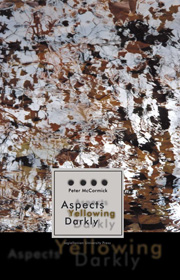 Aspects Yellowing Darkly
Aspects Yellowing Darkly Book contents
- Frontmatter
- Dedication
- Epigraph
- Contents
- PREFACE
- ORIENTATIONS – Moral Intuitionisms and the Emerging Europe
- PART ONE FIRST READINGS
- PART TWO SECOND THOUGHTS
- Chapter Five Montale and Ethical Emancipation from Suffering
- Chapter Six Valéry and the Visual Perception of Suffering
- Chapter Seven Eliot on Moral Discourse on Suffering
- Chapter Eight Residues and Surfeits of Sense
- ENVOI
Chapter Six - Valéry and the Visual Perception of Suffering
from PART TWO - SECOND THOUGHTS
Published online by Cambridge University Press: 05 September 2014
- Frontmatter
- Dedication
- Epigraph
- Contents
- PREFACE
- ORIENTATIONS – Moral Intuitionisms and the Emerging Europe
- PART ONE FIRST READINGS
- PART TWO SECOND THOUGHTS
- Chapter Five Montale and Ethical Emancipation from Suffering
- Chapter Six Valéry and the Visual Perception of Suffering
- Chapter Seven Eliot on Moral Discourse on Suffering
- Chapter Eight Residues and Surfeits of Sense
- ENVOI
Summary
We need now to return for second thoughts to Paul Valéry's richly nuanced poetic meditations on worlds, bodies, and minds with a view to concluding with some further formulations about the nature of ethical intuitions and moral knowledge.
Moral Intuitions and the World
Whether or not there is a satisfactory philosophical criterion for identifying competent moral observers, as we were discussing among other things in our first readings of Valéry, and whether or not there is a distinct species of perception that is moral as opposed to all perception being empirical, we need to look more closely at more of Valéry's work. Our plan is to examine such less familiar materials to try to get a better understanding of just what we are talking about when we talk about moral sentiments, moral feelings, moral intuitions, and even so-called “moral perceptions.” Are all such matters to be understood exclusively as moral contents?
In what follows we will proceed on the assumption that what some moral epistemologists today call moral perception may be taken for our specific purposes here as very closely related to moral intuitions. And for a rough working hypothesis, let us proceed with the idea that several of the European high modernist poetic representations of apparently moral perceptions in the extraordinary notebooks of Paul Valéry provide reflective persons even today with challenging ethical materials for reflection.
- Type
- Chapter
- Information
- Aspects Yellowing DarklyEthics, Intuitions, and the European High Modernist Poetry of Suffering and Passage, pp. 139 - 156Publisher: Jagiellonian University PressPrint publication year: 2010


